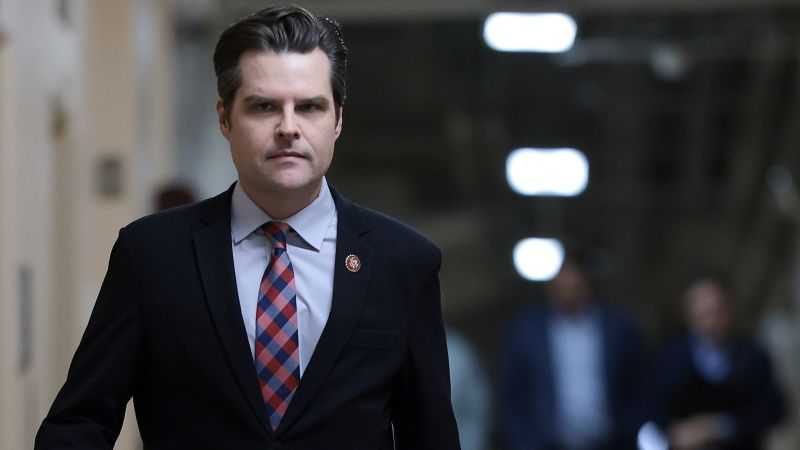Donald Trump’s transition team has bypassed standard background checks by the Federal Bureau of Investigation (FBI) on some of his controversial cabinet nominees, it has been reported, minimising the chances of them being rejected for Senate confirmation based on any past transgressions or conflicts of interest.
Such background checks – a longstanding tradition for incoming presidential nominations dating back decades to the early cold war – have instead been outsourced to private investigators.
The revelation, first reported by CNN, came as shock waves reverberate in Washington from at least three of Trump’s proposed appointees, Matt Gaetz, Tulsi Gabbard and Robert F Kennedy Jr for attorney general, director of national intelligence and health secretary respectively.
Moves to cut out the FBI appear to be in line with a pre-election memo drafted by his legal advisers and fits with Trump’s enduring suspicion that the agency is part of what, without evidence, he believes to be a “deep state” machine within the federal government bent on undermining him.
The bureau’s checks, based on convention rather than legislation, are intended to review nominees’ track records for criminal histories, conflicts of interest or personal liabilities that might disqualify a candidate from being given security clearance.
Gaetz, Trump’s nominee as attorney general, has faced a two-year Department of Justice investigation into sex-trafficking allegations that was eventually dropped without charges being lodged. However, they led to a further investigation by the House of Representatives’ ethics committee that had been due to culminate in a report this week before Gaetz in effect suspended its publication by resigning.
Gabbard, the proposed director of national intelligence, has been accused of having links to the Kremlin while spouting pro-Russian views – an allegation that could complicate her being cleared to oversee sensitive national secrets.
And Kennedy, selected on Thursday as pick for the secretary of the Department of Health and Human Services, could be vulnerable given his open admission about past drug addiction.
It has not been disclosed which appointees have been spared the routine FBI scrutiny.
Gaetz was explicit about his hostility to the bureau in a social media post this week hours before his nomination.
“We ought to have a full-court press against this WEAPONIZED government that has been turned against our people,” he wrote. “And if that means abolishing every one of the three letter agencies, from the FBI to the ATF [Bureau of Alcohol, Tobacco, Firearms and Explosives] I’m ready to get going!”
Lying on a background check application form can lead to criminal charges, while the uncovering of evidence of a potential crime can lead to further investigation.
If nominees do not agree to a background check by the FBI or any other government agency, reviews can still be carried out at the request of the Senate, though investigators may be unable to collect some information without the person’s consent.
after newsletter promotion
The FBI background checks are essential for potential nominees to gain the security clearance that enables them to receive classified briefings before formally taking up their roles.
An attorney general is expected to have security clearance in order to be able to do the job, which involves overseeing America’s vast federal law enforcement apparatus.
Trump could override the vetting system by ordering his appointees to receive security clearance once he takes office on 20 January, as he did with his son-in-law, Jared Kushner, who served in a variety of White House roles in his first presidency.
A White House whistleblower disclosed to Congress that Trump, during his first presidency, ordered security clearance to be given to about 25 appointees whose access had been blocked by background checks that uncovered possible national security concerns.
Dan Meyer, a Washington national security lawyer, told CNN that the Trump team was determined to upend the norms that have governed incoming administrations.
“[They] don’t want the FBI to coordinate a norm; they want to hammer the norm,” he said.
















